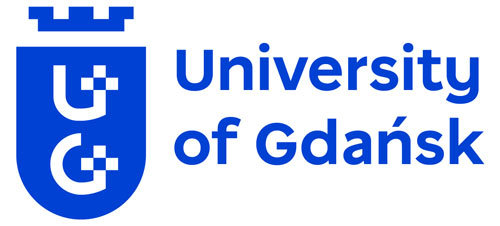9 February, Rome, Italy – The newly launched KATY project has set out to build a precise personalised medicine system empowered by Artificial Intelligence (AI). The novel AI tool aims to predict the response of kidney cancer to targeted therapies and identify the molecular evidence to support these predictions. Most importantly, the KATY system will offer human interpretable knowledge that clinicians and clinical researchers can trust, adequately evaluate and effectively use in their everyday working routine. KATY officially kicks off its activities with a first virtual meeting on 9 February 2021.
Personalised medicine has transformed how doctors diagnose patients and treat diseases. Researchers and clinicians are increasingly customising treatments to fit patients’ needs. In cancer care, targeted therapies have been developed as advanced therapeutic options for anti-tumour treatments. They are now part of the primary therapies for managing several cancer types. After profiling the molecular characteristics of a patient’s tumour, these characteristics are then translated into an appropriate therapeutic choice applicable in the clinic. The procedure requires identifying a molecular signature specific to the patient’s tumour and the signature’s association with the most effective treatment. However, the practice of targeted therapies in cancer treatment has been derived from traditional data analysis methods.
In turn, KATY’s AI-based personalised medicine tool is at the cutting edge of new treatments for cancer and may bring targeted therapies to the next level. Using KATY’s AI-based models in cancer care will boost the use of tailored, targeted treatments and answer a problem encountered daily by clinicians: Which targeted therapy would be the most suitable for a specific patient? Therefore, the project is striving to build a trustworthy, easy-to-understood tool for medical professionals to make better therapy decisions for people with cancer.
“The real challenge is building AI-empowered personalised medicine systems that can be accepted by and, even more, is worth the trust of clinicians and clinical researchers. It is not sufficient to build a wonderful, precise AI system that gives hints on how to solve big problems in medicine by using -omics resources. AI needs to dissipate the Dr Google effect for clinicians and in their relationship with patients.”, says Prof. Fabio Massimo Zanzotto, coordinator of the KATY project at the Università Degli Studi Di Roma “Tor Vergata”.
As a stress test and due to the lack of personalised clinical responses, KATY will initially experiment with data from patients with clear cell Renal Cell Carcinoma (ccRCC), a rare and complex form of kidney cancer.
KATY’s novel AI system will be built around two main components: A Distributed Knowledge Graph (DKG) and a pool of eXplainable Artificial Intelligence predictors (XAIPs). While the DKG is an intelligent repository storing large multi-omics patient and scientific information, the XAIPs will enrich the DKG and deliver understandable personalised medicine decisions. New knowledge generated by the XAIPs will be entered into the DKG and, in turn, will become available to other clinicians.
In a first step, medical professionals will be able to search and browse information in the DKG via a user-friendly interface on their smartphones or desktops. By linking patients’ data to extensive banks of -omics, biobanks, and publicly available datasets and other registries, clinicians and clinical researchers will be equipped to predict patient response to targeted therapies and the identification of molecular evidence to support these predictions. This predictive system enables clinicians to see new connections between existing datasets and individual patient data and, ultimately, select the treatment best suited to each patient.
In a second implementation phase, a simple user experience will be designed to guide conversations between the clinician and the patient regarding treatment choices in renal cancer.
In short, the goals of the KATY project are to:
- reduce the burden of disease for renal cancer patients,
- apply existing treatments in a more targeted way,
- identify new evidence on the predictive value of AI solutions,
- enhance the diagnostic capacity for complex diseases.
Over the next four years, KATY will be supported by € 8.5 million in funding from the European Union’s Horizon 2020 Framework Programme. Twenty internationally-renowned institutions from Austria, France, Germany, Greece, Italy, Poland, Portugal, Spain, Sweden, Ukraine and the United Kingdom form the project consortium.
_____________________________________________________________________________________
PROJECT KEY FACTS
Full Project Title: Knowledge At the Tip of Your fingers: Clinical Knowledge for Humanity
Project Acronym: KATY
Start: 1 January 2021
Duration: 48 months
Budget: 8,479,900.00 €
Coordinator: Università degli Studi di Roma “Tor Vergata”, Italy
PROJECT PARTNERS AT A GLANCE
- Austria
- Universität Wien
- France
- Commissariat à l’Énergie Atomique et aux Énergies Alternatives
- Centre Hospitalier Universitaire de Grenoble
- Germany
- EURICE – European Reseach and Project Office GmbH
- Greece
- Health Policy Institute
- Ethniko Kai Kapodistriako Panepistimio Athinon
- Italy
- Universita degli Studi di Roma “Tor Vergata”
- DS Tech Srl
- Fondazione IRCCS Istituto Nazionale dei Tumori
- Personal Genomics Srl
- Poland
- Uniwersytet Gdański
- Lab4Life Spółka z ograniczoną odpowiedzialnością
- Portugal
- FCiências.ID – Associação para a Investigação e Desenvolvimento de Ciências
- Spain
- Fundació Eurecat
- Open Evidence
- Universidad de Zaragoza
- Sweden
- Lunds Universitet
- Ukraine
- National Technical University of Ukraine Igor Sikorsky Kyiv Polytechnic Institute
- United Kingdom
- The University of Edinburgh
- The University Court of the University of St Andrews
CONTACTS
Project Coordination
Università degli Studi di Roma “Tor Vergata”
Prof. Fabio Massimo Zanzotto
Email: fabio.massimo.zanzotto@uniroma2.it
Project Management
EURICE GmbH
Katie Truslove
Phone: +49 30 374415 835
Email: k.truslove@eurice.eu


